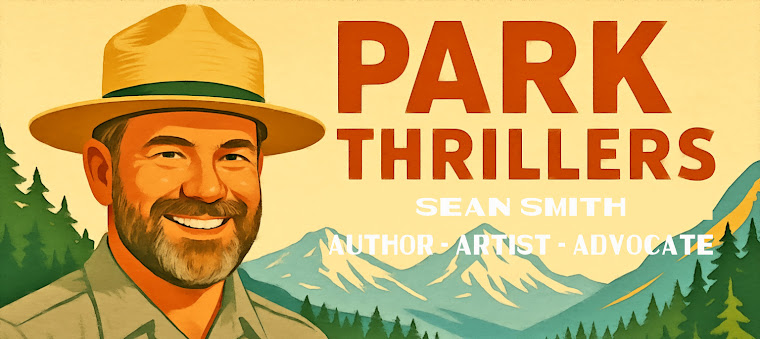
In the first few weeks of the new Trump
administration, the National Parks have been on the front page more times than one can count. On the day of the inauguration, the National Park Service (NPS) twitter account was suspend for re-tweeting an image comparing the
Obama 2009 inauguration crowd with the 2017 one. Nearly, the next day
the new President personally called the Acting Director of the Park Service to get additional pictures of the swearing in an apparent attempt to disprove the low turnout.
Just as the president was being sworn in, park fans and others noticed
mentions of climate change began disappearing from the NPS and other federal websites. It was an apparent attempt to silence the Park Service on the matter.
Later Badlands National Park, despite the President's apparent denial of climate change, tweeted out
about the phenomenon, landing the park in hot water. But rather than rolling over
Alt national park twitter accounts began to pop up all over the Internet including
Alt Acadia,
Alt Badlands,
Alt NPS and many
others. This was an obvious effort by park rangers to spread the truth about our parks and the natural world. In a short period of time, park service rangers, people known for their flats hats and knowledge obscure facts had become leaders of the resistance.
Yet despite this popular groundswell of opposition to the new president's agenda, efforts to undermine our parks and other public lands continue. In the two weeks since Trump took over the White House, legislation has been introduced to
sell off millions of acres of public land,
strip land management agencies of their ability to enforce the law,
permit oil and gas drilling in our national parks, and freeze the
hiring of permanent rangers.
Thanks in large part to a public outcry
some of these bad measures have been withdrawn. Yet many more
bad bills remain and we can likely expect more.
Some might feel hopeless at this development, but there is much we can and must do.
We must continue to
write and call our elected officials. Calls to the President and Republican offices are especially important.
 However, more emphasis should be placed on contacting Democrats and environmental non-profits.
However, more emphasis should be placed on contacting Democrats and environmental non-profits. This is where the true line of defense must be drawn. Democratic lawmakers, especially those in the Senate, and environmental organizations like t
he Wilderness Society, the
National Parks Conservation Association, and the
Sierra Club are going to be under extreme pressure to compromise on bills that will undermine our parks. Democratic Senators for example will be tempted with deals such as increased funds for highway maintenance, if they drop their opposition to park bills. Meanwhile, non-profits will be seduced by promises of access to power if they too compromise our parks. Mark my words, these political dealings are and will happen. We the public must not allow our champions' spines to weaken for too much is at stake.
In 2016 Americans and people around the world right celebrated a system that went from a single park in NW Wyoming to more than 400 parks today. It's a system that some have labeled America's best idea. Twenty Seventeen marks the first year of our National Parks' second century. If that idea is going to see its bicentennial, all park defenders must take action now.
###
Sean Smith is an award winning conservationist and author. He is a former National Park Ranger at Yellowstone, a
TEDx speaker, and private pilot. He graduated from the University of Washington in 1989 with a degree in Political Science. He got his master's in Natural Resources Management from Central Washington University in 1996. He currently runs Washington State's efforts to reduce and eliminate toxic chemicals from consumer products and serves as the Mayor Pro Tem of Covington.
He has been writing stories and books since he was a child and currently writes national park thrillers from the shadow of Mount Rainier.
 Park Thrillers is proud to partner with CafePress to bring its fans and readers high-quality products
Park Thrillers is proud to partner with CafePress to bring its fans and readers high-quality products 




